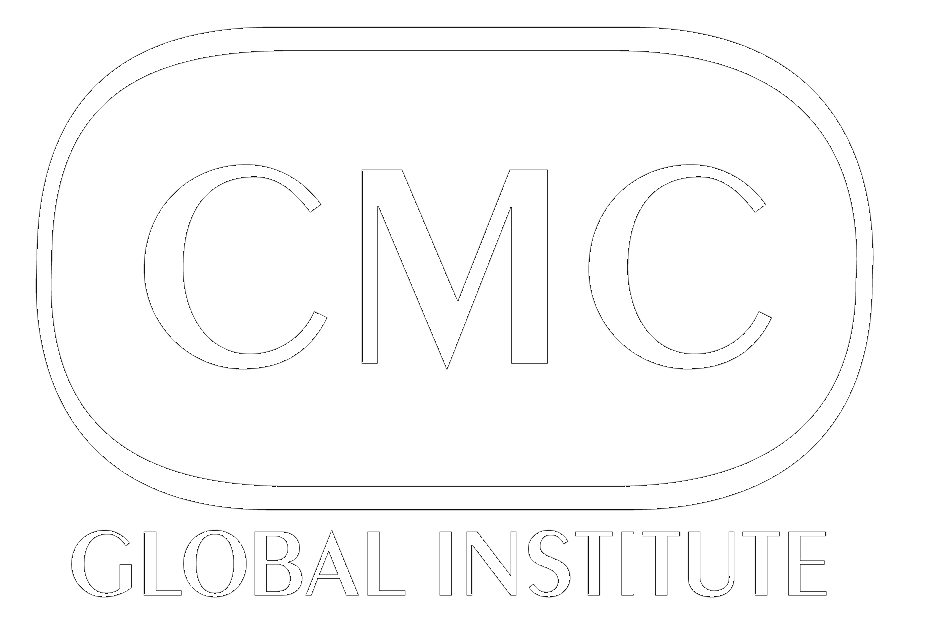About
Our Code of Conduct
The CMC-Global Institute, a proud member of the International Council of Management Consulting Institutes (ICMCI), is staunchly committed to the highest standards of professional conduct and ethics in management consulting. Integral to this commitment is our adherence to the ICMCI Code of Conduct, a guiding beacon for ethical and professional behavior in our industry.
From the outset, every member joining CMC-Global Institute pledges to abide by this Code of Conduct, embedding these values at the very core of their professional practice. This initial commitment is just the beginning of a continuous journey in ethical excellence. Beginning in 2024, all candidates aspiring for CMC certification will be required to successfully complete an Ethical and Professional Conduct Course, ensuring their practices are in line with our stringent ethical standards.
Moreover, our commitment to ethical professionalism is an ongoing process. Every three years, our certified members must renew their pledge to the Code of Conduct, reaffirming their dedication to ethical practices as part of their re-certification proceedings. This persistent reinforcement of ethical principles is essential in maintaining the integrity and credibility of the management consulting profession.
The ICMCI Code of Conduct is not just a set of guidelines but the foundation of our professional ethos. It delineates the responsibilities of management consultants across various spectrums – to clients, society, their organizations, colleagues, and the entire consultancy profession. By adhering to this Code, our members don’t just elevate their professional standing; they contribute significantly to the trust and esteem in which the consulting profession is held globally.
At the CMC-Global Institute, we take pride in promoting and upholding this culture of ethical excellence. We firmly believe that maintaining these high standards is pivotal to nurturing confidence in our profession and plays a critical role in developing management consultants who are not only successful in their careers but are also pillars of integrity and ethical practice.
Serving the Interests of Clients
Compliance with ICMCI’s first principle means that as a Management Consultant, you prioritize and align your services with your client’s interests. This involves understanding their needs, goals, and context thoroughly, ensuring advice and solutions are relevant and beneficial. It also includes maintaining confidentiality, avoiding conflicts of interest, and ensuring decisions are informed and in the client’s best interest
Serving in the Interest of Society
Adhering to the principle of Serving the Interests of Society, as a management consultant, involves actively recognizing and respecting the diverse social, environmental, and cultural contexts in which we operate. It encompasses ensuring compliance with relevant legislation and regulations, assessing the impact of actions on society and the environment, and striving for resource conservation. This principle also entails applying the UN Sustainable Development Goals in assignments, understanding and managing diversity in culture, beliefs, religion, race, and gender, and respecting the customs and practices of different groups. Moreover, it involves understanding and applying principles of Corporate Social Responsibility (CSR), as per ISO 26000:2010, and encouraging clients to adopt these principles in their organizations. This commitment extends to understanding and applying anti-bribery principles and maintaining honesty and transparency in external communications.
Serving the Interest of the Organization I work for
As a professional Management Consultant, complying with the third principle involves a commitment to supporting the organization’s overall objectives, safeguarding its reputation and assets, and aligning personal and corporate values. It requires upholding lawful policies, practices, and procedures, contributing to their enhancement for good management practice. This principle also entails addressing and rectifying any improper issues or standards of professional practice, while balancing the interests of all stakeholders, maintaining confidentiality, and establishing trust-based business relationships. Consultants must neither offer nor accept any favors that could imply improper obligations and must refrain from any unlawful or anti-competitive activities.
Serving the Interest of those I work with
In compliance with the ICMCI Code of Conduct’s fourth principle, a Management Consultant is dedicated to fostering mutual respect, fairness, and understanding in their professional relationships. This involves promoting the personal and professional development of colleagues, respecting their views, giving due credit for their contributions, and maintaining the highest levels of integrity and trust in all interactions.
Serving the Interest of the Consultancy Profession
Under the principle of Serving the Interest of the Consultancy Profession in the ICMCI Code of Conduct, a Management Consultant not only maintains the highest standards of professional conduct with clients but also upholds these standards in interactions with the public. This entails consistently exhibiting integrity and professionalism, actively contributing to the advancement of the consulting field, and sharing knowledge and best practices. The consultant must avoid any actions that could damage the profession’s reputation, ensuring that their behavior always reflects positively on the broader consulting community. In this way, the consultant plays a vital role in preserving and enhancing the public’s trust and respect for the management consulting profession.
Secretariat’s Operating Time Zone
UTC+3 (Addis Ababa, Amman, Cairo, Tallinn)
Address
C/O Keller Rechtsanwälte AG Fraumünsterstrasse 17/PO Box 2669 CH – 8024 Zurich 1, Switzerland
Management Consulting as a Profession

